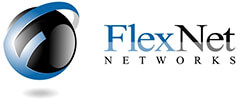The cloud is undeniably an invaluable business tool, so long as you maintain control over your business’ usage of it. This centralized authority over your cloud’s access controls is key to its successful utilization. Let’s briefly discuss what this means, and the ways that this can be established.
What Kind of Centralized Authority Are We Talking About?
Let’s establish something from the get-go: you need to be sure you have absolute control over your business’ technology. You need to have the ability to dictate who can access what, and what devices can be used to do so.
In order to get this kind of control, you need to rule over your domain… domain in this case referring to your network, your business’ group of computers that share rules and managerial controls. To accomplish this, some of your server resources need to be dedicated to managing and enforcing your IT policies across your network. These resources are referred to as the domain controller.
The domain controller makes sure that any device that is added into the domain is held to the same policies. This helps to enable a few key features:
Policy Enforcement
Establishing control over your network through the use of Active Directory helps to set limits that apply to different user groups, commonly as a means of securing against threats like shadow IT and less-than-adequate passwords.
Standard Enforcement
With Bring Your Own Device and remote work gaining popularity—particularly as of late—it is important that the security in place at home is the same as it is in the office. Your domain controller can be used to ensure that access to your network is only granted if certain requirements are met.
Asset Management
There’s a lot of technology that a business needs to maintain, each with its own software and various configurations to account for. Centralizing your authority requires that this information is kept in a specialized database.
Centralized Management
Active Directory and similar services are simpler to manage through the control that centralized authority provides. Divvying up users into groups, Active Directory makes it easier to give these groups different permissions.
Managerial Efficiency
Centralizing a network makes it a lot easier to keep everything maintained and secure, although remote work and Bring Your Own Device policies can make it somewhat more challenging.
How to Establish Your Authority Over Your IT
The first step to consolidating your control over your business’ technology is actually ensuring that the user’s experience while under this control is nice and seamless. This can be accomplished by controlling things to the point that a user only has access to what they need, with the added benefit of the security this approach offers.
We Can Help You Accomplish This
Reach out to us to find out what we can do to simplify your network management. Give us a call at (432) 520-3539.


Comments